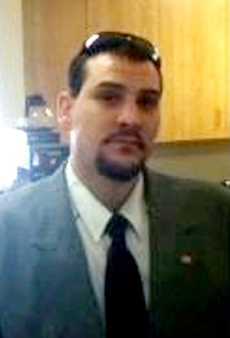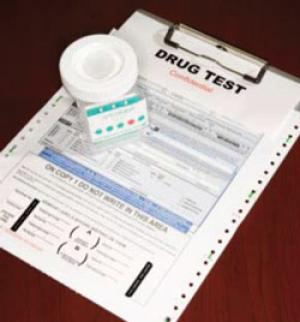In a historic meeting in Antigua, Guatemala, Saturday, three Central American heads of state attended a regional summit to discuss alternatives to the current drug prohibition regime, which has left their countries wracked by violence. No consensus was reached and three other regional leaders failed to attend, but for the first time, regional heads of state have met explicitly to discuss ending the war on drugs as we know it.

Otto Perez Molina on the campaign trail (photo courtesy Surizar, flickr.com/photos/puchica/)
"We have realized that the strategy in the fight against drug trafficking in the past 40 years has failed. We have to look for new alternatives," said the host, Guatemalan President Oscar
Pérez Molina, a former army general who first called for such a meeting last month, shortly after taking office. "We must end the myths, the taboos, and tell people you have to discuss it, debate it."
According to the Associated Press,
Pérez Molina said that drug use, production, and sales should be legalized and regulated. He suggested that the region jointly regulate the drug trade, perhaps by establishing transit corridors through which regulated drug shipments could pass.
Also in attendance were Costa Rican President Laura Chinchilla and Panamanian President Ricardo
Martinelli. Former Colombian President Cesar
Gaviria, a harsh critic of US-style drug policies and a member of the
Global Commission on Drug Policy was an invited guest and addressed the summit. Outside of Central America, Colombian President Juan Manuel Santos and Mexican President Felipe Calderon have expressed support for the meeting.
Not attending were Salvadoran President Mauricio
Funes, Honduran President
Porfirio Lobo, and Nicaraguan President Daniel Ortega. While
Funes initially expressed support for the summit, he has since backed away. Lobo and Ortega have opposed the idea from the beginning.
Funes and Ortega did send lower ranking members of the governments to the meeting, and the Salvadoran delegation called for a future meeting on the subject, saying it remained a topic of great interest and import in the region.
Some leaders are pushing for a discussion on alternatives to the drug war to be on the agenda at next month's Organization of American States (OAS) summit in Cartagena, Colombia, where President Santos has also been signaling an openness to debate on the issue. US President Barack Obama is expected to attend that summit, setting the stage for a particularly sticky diplomatic dance, given US opposition to changes in regional drug policies.
But US-backed drug policies have in recent years brought a wave of violence to the region, which is used as a springboard for Colombian cocaine headed north to the US and Canada, either direct or via Mexico. Mexican drug cartels have expanded their operations in Central America in the past few year, perhaps in response to the pressures they face at home.
High levels of poverty and the strong presence of criminal gangs, particularly in El Salvador and Honduras, have combined with the cartel presence to make the region one of the world's deadliest. El Salvador, Guatemala, and Honduras, along with Jamaica, have the world's highest murder rates.
In its
most recent annual report, the UN Office on Drugs and Crime (
UNODC) said violence linked to the drug wars has reached "alarming and unprecedented" levels in the region. It also noted that El Salvador, Guatemala, and Honduras, along with Jamaica, have the world's highest murder rates.
"How much have we paid here in Central America in deaths, kidnappings, extortion?" asked Chinchilla. "Central America has to ask whether it is time that we raise this issue at the Security Council of United Nations."
Pérez Molina suggested that, barring legalization and a regulated drug trade, consumer countries should be taxed for the drugs seized in the region on their behalf.
"For every kilo of cocaine that is seized, we want to be compensated 50% by the consumer countries, he said, adding that the United States has a "responsibility" because of its high rates of drug use.
While Saturday's summit produced no common platform or manifesto, it is an important step in the fight for a more sensible, effective, and humane response to drug use and the regional drug trade. Leading US drug reformer Ethan
Nadelmann, head of the
Drug Policy Alliance lauded its occurrence as "significant" and "remarkable."
"The rapid evolution of this debate is nothing short of remarkable," he said. "It has progressed in just a few years from the advocacy of activists and intellectuals, to distinguished former presidents, and now to current presidents demanding that all options, including decriminalization and legalization, be seriously evaluated and debated," he noted.
"The significance of this meeting cannot be overestimated, notwithstanding the fact that no one expects a consensus to emerge from this meeting on alternative drug policies,"
Nadelmann continued. "Virtually no one would have predicted" that such a meeting could take place "with the support of presidents in Mexico and Colombia, to discuss drug policy options including decriminalization and legalization. What was once taboo is no longer. The discussion will continue next month at the Summit of the Americas -- in Cartagena, Colombia -- with President Barack Obama and virtually all other heads of state from the region in attendance. At this point it is no longer possible to put this genie back in the bottle."
But that doesn't mean the US won't try,
Nadelmann said.
"Unfortunately the biggest obstacle right now to informed debate is the head-in-the-sand resistance within the Obama administration and Congress to any real discussion of alternative drug policy options" because of fears of attack by political foes. "One result is that US government officials will be increasingly handicapped in the international drug policy discussions at Cartagena and elsewhere, armed only with defenses of failed US policies but bereft of any in-depth analysis of the options that other governments are putting on the table."
back to top
A prosecutor in northern Michigan has cleared the police officer who shot and killed a Grayling man as police and Child Protective Services (CPS) employees attempted to seize his three-year-old. The attempted removal of the minor child came after a police officer who came to the scene on a call earlier that same day reported that he smelled marijuana and reported the incident to CPS authorities, who decided the child needed to be removed. The dead man, William Reddie, 32, becomes the 17th person killed in US domestic drug law enforcement operations so far this year.

William
[Editor's Note: This case illustrates the difficulties that arise in determining which deaths qualify as being a direct result of drug law enforcement. Police here were enforcing child protections laws, not drug laws, but the only reason CPS was called in was because of the allegation of marijuana use. There was no allegation of crazed behavior due to marijuana use; only the allegation of use. For Michigan CPS authorities, that was enough to remove the child. Bottom line: This guy died because the state tried to take his kid because he was accused of smoking pot, so he merits inclusion. That doesn't mean his own actions didn't contribute to his death.]
Reddie's killing took place on February 3, but we only became aware of it when news broke this week that prosecutors had decided that the police officer's use of deadly force in the incident was justified.
According to the
Crawford County Avalanche, Grayling police Officer Alan
Somero was called to
Reddie's apartment for an alleged domestic disturbance.
Somero made no arrests, but believed he smelled marijuana and reported it to CPS. Two CPS employees went to
Reddie's apartment to check on the situation. They then got a court order to remove
Reddie's 3-year-old son, Cameron, and asked police to escort them to the apartment to serve the court order.
The
Gaylord Herald-Times, which obtained the CPS removal order, added more detail. It reported that
Reddie had been accused of smoking marijuana in front of his son, and that
Reddie had become "agitated" and threatened police when confronted by that accusation earlier in the day.
The court order gave the following reason for removing the child: "There are reasonable grounds for this court to remove the child(
ren) from the parent... because conditions or surroundings of the child(
ren), and is contrary to the welfare of the child(
ren) to remain in the home because: It is alleged that the father used marijuana in the home in the presence of the child. In addition, there is concern for the safety of the child due to a domestic disturbance and threats made toward law enforcement by the father."
Returning to the Avalanche's narrative, when police and CPS workers arrived to seize the child,
Reddie then reportedly displayed a pocketknife and lunged at them. Crawford County Deputy John
Klepadlo shot and killed him. Police had been deploying
Tasers, but holstered them and grabbed their guns when
Reddie displayed the knife.
Crawford County Sheriff Kirk Wakefield then asked the Michigan State Police to investigate his deputy's use of deadly force. The Michigan Attorney General's Office referred the case to the neighboring
Roscommon County Prosecutor's Office. After receiving a report from the State Police,
Roscommon County DA Mark
Jernigan determined that the use of deadly force was justified and that
Klepadlo would not be charged with any crime.
"The deceased was in possession of an edged weapon,"
Jernigan said. "The deceased pulled a knife and hid it behind his back. At the point where he pulls his hand forward and lunges at the officer, he is in such close proximity, and presents a clear danger of deadly force, the officer is left with no option other than to use deadly force to protect himself, the other officer and the three civilians that were present. The use of deadly force is completely justified and therefore, the homicide was justified."
Toxicology reports, which were included in the final investigation, showed there was no marijuana or alcohol in
Reddie's system when he was killed.
Reddie had been seeking permanent custody of his son and was due in court for a hearing on that matter three days after he was killed.
"They took the only thing he ever loved,"
Reddie's mother, Michelle
VanBuren, told the Avalanche after the prosecutor's announcement.
VanBuren said she was baffled by the conduct of authorities, especially since no evidence or alcohol or marijuana use was found. She said she had been in contact with her son throughout that day.
"I was on the phone with my son all day, and that cop was bullying him and harassing him so badly," she said. "Where was protect and serve?"
VanBuren asked. "The officers always have to stick together and for them to do this is just totally uncalled for."
VanBuren said the family would continue to fight to ensure that CPS and law enforcement are held accountable for their actions. "They need to be held accountable and they will be held accountable, believe you me," she said.
Reddie's family is not alone in questioning police and CPS actions. "I can't believe they (police) could not subdue Will without killing him, and over what, marijuana," said Joanne Michal, who knew
Reddie for half of his life. "Why didn't police just arrest him or cite him for marijuana instead of removing his child?" she told the Herald-Times.
"It is particularly sad that Will was shot to death right in front of his son," Michal continued. "Why not use a
Taser? Even if he (Will) had a knife and lunged at police, they didn't have to kill him. Instead of using a
Taser, you shoot him in front of his child. It is just totally unjustified. They didn't have to kill him. I think it's very sad that his life was taken during the removal of his son. And the smell of marijuana shouldn't have been a reason for an emergency order. Just a few days before he was killed, Will was visiting, and he was so excited because a hearing was coming up for custody. And it seemed to give him hope of getting permanent custody. His son was everything to him."
Crawford County Clerk Sandra Moore said she also knew
Reddie. "It's truly a shame," Moore said. "He was a good guy and very fond of his son. He had been very excited just days before" about gaining permanent custody.
Cameron
Reddie is now in foster care. His father's family is seeking visitation rights.
Meanwhile, Deputy
Klepadlo, who had been on administrative leave after the shooting, is back on the job.
back to top
More DEA raids in California, more threat letters in Colorado, plus action from the statehouse to the courthouse. Just another week in medical marijuana politics.
Arkansas
Signature gathering is underway for a proposed
medical marijuana initiative sponsored by
Arkansans for Compassionate Care. The initiative would allow patients with serious or debilitating medical conditions to use and possess marijuana and to purchase it from state-regulated, nonprofit dispensaries. Patients could grow their own if they live more than five miles from a dispensary. The campaign needs to gather 65,000 valid voter signatures by July to make the November ballot.
California
Last Tuesday,
the Richmond city council voted to double the number of dispensaries in the city. The council approved an ordinance allowing up to six dispensaries, or one for every 17,000 residents. Oakland, by contrast, only allows one for every 50,000 residents. Right now, though, even the three dispensaries already permitted haven't opened.
Last Wednesday,
the LAPD raided the Nature's Answer dispensary in
Reseda, seizing 50 pounds of pot and $17,000 in cash. Owner Annie Bishop was arrested for possession for sales of marijuana. They also raided her home in Van Nuys. LAPD is taking the position that medical marijuana sales are illegal.
Last Thursday,
DEA and local police raided a Temecula dispensary, the Co-Op Social Club. The raid came just days after the DEA raided another Riverside County dispensary, the Greenhouse Cannabis Club in Murrieta. That same day,
the DEA raided a Lake Elsinore medical marijuana grow-op, the Consolidated Container Nursery as part of the same investigation.
That same day,
two men struck a plea bargain over their role in the North Bay Dispensary in Newark. The dispensary was raided by the DEA last year, but the pair copped to state charges and received jail sentences of one and five days, which they already served after being arrested. Charges against three dispensary employees were dropped. Meanwhile, a civil dispute between the
NBD Collective and the city of Newark, which started almost as soon as the club opened in 2009, is still ongoing.
Also last Thursday,
the UFCW announced it was unionizing Los Angeles dispensary workers. "This is the next step in professionalizing and stabilizing this new sector of the health care industry," said Local 770 president Rick
Icaza in a press release. "Unionization and collective bargaining bring better training, less turnover, and more stability to the health care industry. This is a positive step towards successfully integrating compassionate care into our system of health care."
Last Friday,
signature gathering began for an Imperial Beach initiative, the Safe Access Ordinance, which would overturn the city's current ban on dispensaries and replace it with zoning and other regulations for dispensing collectives and cooperatives wishing to operate in the city. The move comes after more than two years of tussles with the city, which has adopted an outright ban on dispensaries. The initiative is a joint effort of Canvass for a Cause,
Americans for Safe Access, and concerned citizens in Imperial Beach. Organizers need 1,000 valid signatures to get on the ballot and hope to collect 2,000.
On Sunday,
California NORML reported that
Assemblywoman Nora Campos (D-San Jose) had introduced a bill,
Assembly Bill 2465, which would require all medical marijuana patients to register with the state. The bill is sponsored by the Police Officers' Research Association of California, which wants to make it easier for police to distinguish between illegal and legal marijuana users. California
NORML strongly opposes the bill, saying it infringes on patients' right under Prop 215 to legally possess and cultivate marijuana given a physician's written OR oral recommendation.
On Tuesday,
the Redding city council vote not to appeal a judge's ruling that rejected the city's request for a preliminary injunction on medical marijuana storefront collectives. That means dispensaries can continue to operate in the Shasta County community. Redding's elected officials have said they were surprised and confused by Shasta County Superior Court Judge Stephen Baker's decision, handed down late last Wednesday.
Also on Tuesday,
the Daly City city council voted to ban dispensaries, with Councilman David
Canepa saying he'd allow the clubs over his "dead body." Council members cited a report from Police Chief Manuel Martinez that noted the city has a problem with illegal indoor pot grows.
Also on Tuesday,
a Santa Monica marijuana testing facility filed a lawsuit against the city to force it to give it a business license, which it has so far refused to do. Golden State Collective, the testing firm, applied for a business license in December, but was turned down even though it is not a dispensary. The facility opened this month, but closed again after being informed it could be fined.
Colorado
Last Friday,
US Attorney John Walsh sent threat letters to 25 more dispensaries. In January, he sent out 23 threat letters, forcing those dispensaries to close. The latest targets have 45 days to close or face the seizure of their property. And there will be more to come, Walsh's office said.
Michigan
Last weekend,
the second annual Detroit Medical Marijuana Expo took place, drawing more than 130 vendors and large crowds.
On Wednesday,
the Michigan Supreme Court agreed to decide a key issue in conflicts over the state's medical marijuana law: whether patients can sell marijuana to other patients. The case involves the Compassionate Apothecary in Mt. Pleasant, which was targeted by prosecutors in 2010. A lower court found that sales were permitted, but an appeals court disagreed, leading to the closing of the dispensary and many others around the state after the ruling.
Montana
Last Friday,
medical marijuana providers targeted by the DEA in raids last year said they would appeal a federal district court ruling dismissing their challenge to those raids. More than a dozen providers, as well as the
Montana Cannabis Industry Association, challenged the legality of the federal enforcement operations, but suffered a defeat in January, when US District Judge Donald Molloy, citing the 2005
Raich decision by the US Supreme Court, ruled that state law does not shield providers from federal prosecution. Their appeal goes to the
9th US Circuit Court of Appeals in San Francisco.
On Tuesday,
another medical marijuana provider pleaded guilty in federal court to charges stemming from the DEA raids of March 2011. Christopher Ryan Durbin of Whitefish operated several medical marijuana businesses, including Good Medicine Providers and a pair of large warehouse grows. DEA agents made undercover buys at Good Medicine and seized more than 1,000 plants at the warehouses. Durbin copped to conspiracy to manufacture and distribute marijuana and structuring bank deposits to avoid IRS reporting requirements. He faces sentencing on June 29.
New Hampshire
On Tuesday,
sponsors of a medical marijuana bill held a press conference to try to drum up a veto-proof Senate majority for the bill. State Sen. Jim Forsythe (
R-Strafford) and state Rep.
Evalyn Merrick (D-Lancaster) worry that
Gov. John Lynch will veto the bill because of his historical opposition to such measures.
On Wednesday,
the Senate passed the bill on a 13-11 vote. That's not enough to overcome a threatened veto, but the bill still has to go through the House, and that gives supporters time to try to pick up the handful of Senate votes they will need.
New Jersey
Last Friday,
one of the nonprofit groups trying to set up a dispensary said it is giving up. The
Greenleaf Compassion Center in Montclair is further along in the process than any of the other groups, but CEO Joe Stevens said he was put off by repeated delays and that he has no faith in state officials anymore. The state's law was passed more than two years ago, but none of the six dispensaries allowed by the law have opened, due to delays by the Christie administration and
NIMBYism in local communities.
Rhode Island
On Wednesday, lawmakers were set to consider compromise dispensary legislation,
House Bill 7888, that would allow the three state-designated outlets to open.
Gov. Lincoln
Chafee (I) blocked them last year after the state's US Attorney warned they could be prosecuted under federal law. The compromise would limit the amount of marijuana dispensaries could have, but that had advocates worried limits too low would make them economically unviable. Also getting a hearing Wednesday, are a pair of bills sponsored by Attorney General Peter
Kilmartin,
Senate Bill 2783 and its companion, House Bill 7960, that would impose various restrictions on the state program. Some medical marijuana proponents are cosponsoring the bills in a bid to get a say in their final forms. As of late Wednesday evening, there were no reports back from Providence.
Tennessee
On Tuesday,
a medical marijuana bill advanced in the House. A House Health subcommittee approved
House Bill 294 on a voice vote. It now goes before the whole House Health Committee. The bill would allow patients with specified diseases or conditions to use medical marijuana and would set up a state-regulated and -licensed distribution system. Its companion measure, SB 251, remains stuck in the Senate Government Operations Committee.
Washington
Last Friday,
city of Issaquah planners approved a permit for the GreenLink Collective to open for business. The facility will process and deliver medical marijuana to qualified patients, offer classes and information, and sell supplies for people to produce and consume marijuana under a framework established by state law.
GreenLink does not intend to grow marijuana in the space. State law allows up to 10 qualifying patients to join together and form a collective garden of up to 45 plants, so long as the marijuana is not visible from public spaces.
GreenLink operators must also install a security system and cameras onsite. The collective first opened in 2010, but city officials refused to give it a business license, then, in June 2011, the city council imposed a moratorium on collective gardens. The council adopted new rules governing collectives in December, and now
GreenLink has its permit.
Washington, DC
On Friday,
DC is set to announce who will get the five marijuana cultivation permits for the city's long-awaited medical marijuana dispensaries. The city has authorized up to ten sites, but only five will be announced Friday.
West Virginia
Last Wednesday, the
Marijuana Policy Project announced that a medical marijuana bill,
House Bill 4498 had been denied a hearing in the House Health and Human Resources Committee. The bill's sponsor, Del. Mike
Manypenny (D-Grafton) will attempt to keep the issue alive by offering a resolution,
HCR 144, calling for the legislature to study medical marijuana more thoroughly.
back to top
We continue our newest offer for donating members, the reprinted drug policy classic
The Marijuana Conviction: A History of Marijuana Prohibition in the United States. Originally published in 1974, this amazing work by professors Richard Bonnie and Charles
Whitebread was the first comprehensive history of marijuana use and its prohibition in the United States. Bonnie and
Whitebread's historical overview examines the origins and history of marijuana prohibition as well as the laws' unintended consequences.
Thanks to a generous donation from our friends at the
Drug Policy Alliance, we are able to offer this 368-page volume, which retails at $32.49,
for $22 including shipping. (Add $2 for Canada or Mexico or $8 for overseas.)
Donate $22 or more to StoptheDrugWar.org and you will be eligible to receive a complimentary of The Marijuana Conviction. Click here to make a donation online by credit card or PayPal. You can also donate by mail -- info below.
As a reader of Drug War Chronicle you know that it is a challenging time in drug policy reform. Medical marijuana is under attack;
draconian sentencing bills are getting heard in Congress; drug testing bills are spreading from state to state. To help us fight back as hard and as well as we can, I hope you'll consider donating more than $22 if you can afford it, or to supplement your $22 with a continuing monthly donation. If gift items like
The Marijuana Conviction are not important to you, I hope you'll consider sending a donation that's entirely for our work. (We are grateful for donations of any size -- don't feel bad if $22 is what you have to spare and you want the book!)
Donations to StoptheDrugWar.org can be made online at
http://stopthedrugwar.org/donate, or they can be mailed to:
DRCNet Foundation (tax-deductible), P.O. Box 18402, Washington, DC 20036; or Drug Reform Coordination Network (non-deductible for lobbying), same address. (Contact us for information if you wish to make a donation of stock.) Be sure to indicate if you are requesting
The Marijuana Conviction or another of our current gift items.
Thank you for standing with us to stop the drug war's cruelties and meet the opportunity this time offers to make a brighter future. And don't get discouraged by the challenges our movement and the cause are currently facing:
Time, and the truth, are on our side!
Sincerely,
David Borden, Executive Director
StoptheDrugWar.org
Washington, DC
http://stopthedrugwar.org
back to top
Medical marijuana bills are moving in New England. Last Wednesday, a Connecticut joint committee approved a bill there, and the following day, a New Hampshire Senate committee approved one there.
In Connecticut, the Joint Committee on the Judiciary voted 35-8 to approve
House Bill 5389, which would create a system for licensing producers and distributors. The bill would also allow patients or their primary caregivers to possess an amount reasonably necessary for a one-month supply. What is "reasonably necessary" would be determined by the Department of Consumer Protection after the bill becomes law.
Although some legislators raised concerns about possible conflicts with federal law, Connecticut voters don't seem to share those concerns. A
Quinnipiac University poll released the same day as the committee vote showed that 68% supported the medical marijuana bill, with only 27% opposed.
In New Hampshire, the Senate Health and Human Services Committee approved
Senate Bill 409 on a unanimous 5-0 vote. The vote came after a 2 ½ hour public hearing earlier this month.
The bill would allow patients or caregivers to possess up to six ounces of marijuana
and "an amount of usable marijuana from up to six plants." It would also create a patient registry, but not a distribution system.
"If a seriously ill patient and his or her doctor believe marijuana may be the best option, government should not interfere with that decision, and I'm very pleased to see unanimous agreement from this committee," said the bill's primary sponsor, Sen. Jim Forsythe (
R-Strafford).
"This vote will bring hope to New Hampshire patients who shouldn't have to wait any longer for safe, legal access," said
Marijuana Policy Project legislative analyst Matt Simon, who has been working the state house. "The committee appears to understand that these laws are not causing problems in states such as Vermont and Maine, or surely we would hear about them here in New Hampshire."
back to top
The New Hampshire Senate voted Wednesday to approve a medical marijuana bill, Senate Bill 409, in a 13-11 vote. The bill now moves to the House.
"I know this was a difficult vote for several of my colleagues, and I applaud them for asking the tough questions that helped us make this a better bill," said Sen. Jim Forsythe (R-Stafford), the bill's prime sponsor. "The intent here has never been to turn New Hampshire into California," he added. "We've worked hard to make sure SB 409 will protect patients and their families without opening to door to abuse, and I'm very pleased that a majority of my colleagues ultimately chose to support this bill."
Rep.
Evalyn Merrick (D-Lancaster), a cancer survivor, led the charge on medical marijuana legislation in the last two sessions. "All along we’ve been saying that this issue transcends partisan boundaries, and it's very gratifying to see so many Republicans join the growing bipartisan consensus in support of medical marijuana," she said after Wednesday's vote.
The bill would allow patients with serious illnesses such as MS, cancer, and AIDS to register with the Department of Health and Human Services and receive ID cards protecting them from arrest if their doctor recommends marijuana. Qualifying patients would be permitted to cultivate up to four mature plants in an enclosed, locked facility. There is no provision for dispensary-style distribution.
A similar bill passed the House by a margin of more than two-to-one last year, but died in the Senate. Two years earlier, both chambers passed a medical marijuana bill, only to see it vetoed by
Gov. John Lynch (D).
Gov. Lynch has already threatened to veto this legislation, too. Earlier this week, his press secretary, Colin Manning, told the
Nashua Democrat that Lynch remains opposed to the bill because it runs counter to federal law.
"The governor raised concerns about lack of regulation for distribution, and this is even less restrictive," Manning said. "Six ounces is a lot of pot to have access to, and that's why he'd veto this bill, too."
While the margin of passage in the Senate is not veto-proof, activists and legislators will be continuing to work the Senate in hopes of persuading a handful of "no" votes to flip to the "yes" column in the event the bill passes the House and Lynch holds true to his veto threat.
back to top
In Louisiana, merely possessing an ounce of heroin earns a mandatory minimum five-year prison sentence and up to 45 years, and possessing 400 grams (less than a pound) earns a 15-year mandatory minimum. Possession of any amount with the intent to distribute earns a five-year mandatory minimum sentence, and up to 50 years. That's not enough for one Louisiana legislator.

An ounce of heroin would get you eight years in prison under a bill proposed in Louisiana. (wikimedia.org)
Sen. J.P. Morrell (D-New Orleans) has introduced a pair of bills that would make those
draconian sentences even harsher.
Senate Bill 66 would double the mandatory minimum for possession with intent from five to 10 years, while
Senate Bill 67 increases the penalty for possessing an ounce from five to eight years and the penalty for possessing 400 grams from 15 to 24 years.
Those bills are currently before the Senate Judiciary Committee, as is another
Morell-sponsored bill,
Senate Bill 3, which would alter the state's second-degree murder statute.
Under that law, deaths that occur during the commission of any of 15 specified felonies are considered second-degree murder, even if the perpetrator had no intent to kill. Morrell's bill would add "the unlawful sale, distribution, or dispensation of heroin, methamphetamine or 'crack' cocaine" to the list. Under Morrell's bill, people who sold those drugs to others who then overdosed and died could be charged with second-degree murder.
Yet another Morrell bill,
Senate Bill 59, would make it a felony offense to use a minor in a drug trafficking offense or even to commit such an offense if a minor is present. Morrell seeks a 10-year mandatory minimum for that one, and up to 30 years. SB 59 has already passed out of committee and awaits a Senate floor vote.
back to top
A bill that would drop some drug offenses from felonies to misdemeanors was introduced Tuesday in the Colorado Senate. Sponsors said the intent was to reduce prison populations and ensure that addicted drug users get treatment instead of long prison sentences.

It costs $32,000 a year to jail drug offenders at the Colorado State Prison II in Canon City. (cpr.org)
The measure,
Senate Bill 163, would make the possession of less than four grams of most controlled substances a misdemeanor. It is currently a Class VI felony, the least serious felony level. Possession of more than four grams would drop from a Class IV felony to a Class VI felony.
Methamphetamine gets slightly stiffer treatment. In the case of meth, possession of less than two grams would drop from a Class VI felony to a misdemeanor, while possession of more than two grams would drop from Class IV to Class VI.
Sen. Shawn Mitchell (R-District 23), one of the bill's cosponsors, has spoken publicly about his younger brother's struggles with meth and said he wants a more reasonable approach to drug use. His bill would require that any savings from reduced prison populations be used to fund drug treatment.
"The war on drugs has made government more powerful, citizens less free, and hasn't helped users or addicts," Mitchell said. "I want to push a smarter effort against drugs. I want to stop piling people into prisons and stop branding people with a felony for a personal weakness."
The bill has bipartisan support in the legislature, but is opposed by prosecutors.
Tom
Raynes, head of the Colorado District Attorneys' Council, told legislators that most first-time drug offenders already get deferred sentences that can be dismissed if they meet certain conditions, such as completing drug treatment programs. He said he is concerned the bill would remove an incentive for people to complete treatment.
"Kind of what keeps people in the program is concerns over getting a felony conviction," he said.
But the
Colorado Criminal Justice Reform Coalition, which supports the bill, reported that in the 16 months ending in November 2011, 310 people convicted of drug possession were sentenced to prison, accounting for 60% of all drug offenders sent to prison. Each one of them costs the state $32,000 a year to imprison.
"I think that as state budgets have struggled, under that there's been more energy put into asking ourselves what works to promote public safety," said Christie Donner, executive director of the coalition.
Thirteen other states and the District of Columbia already have laws making simple drug possession a misdemeanor instead of a felony.
Similar legislation was introduced in California last month.
SB 163 has been referred to the Senate Judiciary Committee, where it awaits a hearing.
back to top
An 11-year-old girl, the ACLU of Pennsylvania, and the Philadelphia law firm Dechert LLP have filed suit against a Lancaster County school district over its policy requiring random drug tests of students engaging in extracurricular activities. The ACLU said the lawsuit was filed last Wednesday.
The suit was filed on behalf of the student, identified only by the initials "MM" and her parents, Mika and Christopher McDougall of Peach Bottom. The lawsuit says MM was barred from participating in orchestra and chorus at the beginning of the school year and cannot join any athletic or academic teams because she and her parents refused to consent to submitting her to drug tests.
"We refused to sign the forms, so on her first day of orchestra, she was on her way to rehearsal, she was told by the principal she was not allowed to be in the orchestra," Christopher McDougall said.
MM is described as an academically high-performing student who was also asked to join the school's math club, but is barred from that as well.
The US Supreme Court has held that the random drug testing of student athletes or students involved in extracurricular activities does not violate the US Constitution. But some state supreme courts, including Pennsylvania's, have found protections against random drug testing of students in their state constitutions.
The lawsuit charges that the
Solanco School District's student drug testing policy violates a 2003 Pennsylvania Supreme Court decision holding that random drug testing of students is unconstitutional unless the school districts can show that the group of students being tested had a high drug use rate. That case was
Theodore v. Delaware Valley School District.
The ACLU and
Dechert LLC brought
similar lawsuits against two other school districts last year. In both of those cases, state court have issued preliminary injunctions barring the school districts from conducting random drug tests of students.
"In the past year, judges have issued injunctions to stop similar policies in two other school districts. Unfortunately, the
Solanco School District has not learned from other districts' mistakes," said Reggie
Shuford, executive director of the ACLU of Pennsylvania. "Not only are these policies a violation of students' right to privacy, numerous studies have shown they do not reduce student drug use," he continued.
"We're surprised and disappointed that
Solanco School District is not only ignoring the law, but also the example of other school districts which have rejected the same policy because they understand that spying on students without suspicion is against the Constitution," said the
McDougalls. "These are young people who have done nothing wrong, not prisoners on parole. We've tried repeatedly to persuade the district to abide by the state Supreme Court's ruling, but it has refused. That's unfortunate, because the district's responsibility is to teach students to respect and understand the law, not sidestep it."
The school district has yet to comment.
back to top
Changes to West Australia's Misuse of Drugs Act that came into effect last weekend are shifting the state from among Australia's most marijuana-friendly to one with the most draconian punishments. People convicted of growing a single pot plant or processing the herb could face a mandatory minimum one-year sentence if a child was endangered or suffered harm.

West Australia succumbs to "reefer madness"
People convicted of a second drug offense, even if they were growing only one plant, face a six-month mandatory minimum if by doing so, they endangered a child's health by exposing him to the activity. People could get the mandatory minimum, for example, if a child is exposed to fertilizers or pesticides, if he cut himself on gardening equipment, or if he knocked over a potted marijuana plant and injured himself. In passing the amendments, West Australia is criminalizing and harshly punishing acts that would be considered accidents, or, at worst, incidents that could be investigated for child endangerment, if any other plant were involved.
That's a sea change from last year, when people who were caught growing one or two marijuana plants faced a maximum $150 fine and drug counseling. The amendment is ostensibly aimed at clandestine drug labs -- meth lab busts happened at a rate of every other day in the state last year -- but they also target those who "cultivate or prepare illicit drugs," including marijuana.
A spokeswoman for Police Minister Rob Johnson told the
Australian AP that it was "unlikely" small-time users and growers with children would be sentenced under the provision, but there was still a risk.
"If the children are exposed to dangerous chemicals and safety hazards as a result of the cultivation or are injured by the cultivation, the new provisions could be applied," the spokeswoman said.
But the West Australia Law Society criticized the mandatory minimums, saying they removed any discretion in sentencing and were open to abuse.
"You might even find that where the judicial system does not agree with a mandatory jail term for a small-time cannabis grower and user, there will be a reluctance to prosecute or convict," a society spokesman said. "As it stands, the punishment would certainly not fit the crime and would appear to be excessive."
The opposition Labor Party, which had championed the state's earlier progressive marijuana laws, tried to have it both ways. The party voted for the amendments because it didn't want to be seen as "soft on crime," but tried to change the legislation to remove mandatory minimums for marijuana growers and users, spokeswoman Michelle Roberts told the
AAP. Failing that, Labor voted for it anyway.
And Labor leader Mark McGowan said he disagreed with the new provisions. "Personally, I wouldn't like to see people go to jail,
mandatorily, if they're growing a couple of marijuana plants -- even though we support laws to ensure that is made an offense," he said.
While Labor can share the credit -- or blame -- for passage of the amendments, the bulk of the responsibility lies with the ruling Liberal-National coalition government, which pushed the legislation as part of its "tough on crime" agenda.
The law contains "obvious injustices," Labor spokeswoman Roberts said. "It won't stop drug cultivation -- there's no evidence to suggest that," she said. "What it's going to do is wrap up a whole lot of people unwittingly into a situation where they are facing a mandatory jail term. It's a huge cost to the community -- hundreds of thousands of dollars to incarcerate both parents and to take a child or children into care," she said. And it doesn't actually deal with the main issue," which she identified as drug addiction.
back to top
An unnamed DEA agent in Laredo, Texas, Saturday shot and killed one of four men he and other agents were trying to arrest as they wrapped up an undercover operation in which DEA agents posed as Mexican cartel members seeking assassins. The dead man, Jerome Corley, becomes the 18th person to die in US domestic drug law enforcement operations so far this year.
According to Reuters, citing court documents filed Monday, undercover DEA agents working the months-long sting sent in an arrest team to detain the four men. One of the agents shot
Corley repeatedly, killing him. The court documents provided no other details on the circumstances of the shooting.
The sting operation began in January 2011, when undercover DEA agents posing as members of the
Zetas, a notoriously violent cartel originally composed of US-trained former Mexican elite soldiers, were told by two men in South Carolina that
Corley's cousin, Kevin
Corley, a lieutenant in the US military until two weeks ago, could sell them automatic weapons and ammunition.
As the months ticked by, the DEA agents developed the relationship with Kevin
Corley, who told them he was an Army officer who trained soldiers and said he could put together a murder-for-hire ring to raid a South Texas ranch, kill the owner, and recover 20 kilograms of stolen cocaine. He said he and his cousin would carry out the hit for $50,000 and five kilos of coke.
Earlier this month, Kevin
Corley sold three assault rifles, five stolen bullet-proof vests, and other equipment to an undercover DEA agent in Colorado Springs, Colorado, for $10,000, the court documents said. At that meeting,
Corley discussed the pending hit, saying he had purchased a knife to carve a "Z" in the victim's chest and a hatchet to dismember his body.
At that point, the DEA decided to wrap things up and sent in its arrest team. The surviving members of the wannabe hit squad, including one active duty member of the US Army, are now in federal custody in Laredo and facing federal drug conspiracy and weapons charges.
back to top
An ugly strip search scandal brews in Milwaukee, a bogus pot bust get cops in hot water in Pittsburgh, plus a crooked border deputy, a crooked Puerto Rico cop, and a crooked prison guard. Let's get to it:
In Milwaukee, Wisconsin,
eight Milwaukee police officers are under investigation for conducting unlawful strip searches on people they suspected were carrying drugs. Complaints are piling up that officers in District 5 on the city's north side sexually assaulted people and violated their civil rights while conducting rectal searches for drugs on the street. Those under suspicion include
Sgt. Jason
Mucha, who has been investigated in the past after suspects accused him of beating them and planting drugs on them, and Officer Michael Gasser. Under state law, it is illegal for police to perform a cavity search involving someone's genitals. Such a search must be done by licensed medical personnel once a suspect has been arrested.
In Pittsburgh, Pennsylvania,
two Pittsburgh police officers are the targets of a lawsuit filed last Monday by a Hampton man who alleges they falsely arrested him for buying marijuana at a car wash. Officers Kenneth Simon and Anthony
Scarpine arrested Timothy Joyce, 23, after Simon claimed he saw Joyce buy weed from a man at the car wash. That led to Joyce being jailed for several days on a charge he violated probation on a misdemeanor drug possession charge. Video surveillance at the car wash showed that Joyce did not interact with the man the officer claimed sold him the marijuana, and the charges were dropped. Joyce is suing the city and the two police officers for unlawful arrest, unlawful search and seizure, and malicious prosecution.
In McAllen, Texas,
a former Hidalgo County sheriff's deputy was sentenced last Monday to 11 years in federal prison for his role in a 2009 drug conspiracy.
Heriberto Diaz and another deputy raided a house filled with 354 pounds of marijuana, but instead of arresting the occupants, they arranged to have one of their informants steal it. The plot unraveled when a Mission police officer came upon the informant as he was removing the marijuana from the property. Diaz was convicted of conspiracy to distribute marijuana and lying on an official report.
In San Juan, Puerto Rico,
a former San Juan Municipal Police officer was convicted last Wednesday for his role in providing security for drug transactions.
Arcadio Hernandez-Soto, 35, was convicted in San Juan of three counts of conspiracy to possess with intent to distribute more than five kilograms of cocaine, four counts of attempting to possess with the intent to distribute more than five kilograms of cocaine, and four counts of possession of a firearm in furtherance of a drug transaction. He provided security for what he believed were illegal cocaine deals, but which in fact were part of an undercover FBI operation. In return for the security he provided,
Amaro-Santiago received a cash payment of between $2,000 and $3,000 for each transaction. He faces a mandatory minimum sentence of 90 years in prison and a maximum penalty of life in prison.
In Bloomfield, New Jersey,
a Bloomfield prison guard was sentenced last Friday to five years in state prison for his role in a scheme to smuggle drugs, cell phones, and other contraband into the Essex County Correctional Facility. Corrections officer Joseph
Mastriani, 32, was the mastermind of the ring and made $1,000 a week in the operation. He had pleaded guilty in November to one count of second-degree official misconduct. Under the terms of the plea agreement, he is required to serve five years in prison before being eligible for parole.
back to top
April 1, 1909: The Opium Exclusion Act takes effect.
April 3, 1953: With the support of Allen W. Dulles, director of Central Intelligence, Richard C. Helms proposes funding for a biochemical warfare research program named
MKULTRA, which among other things administers LSD to its unknowing participants.
March 30, 1961: The UN Single Convention on Narcotic Drugs is convened in New York City, the first of the three international treaties binding signatory nations into prohibitionist systems.
April 2, 1988: The Economist editorializes in favor of bringing drug users within the law by allowing them to purchase limited doses of drugs that have been manufactured and distributed legally.
March 30, 1992: Bill Clinton, during the 1992 presidential campaign, says, "When I was in England I experimented with marijuana a time or two, and I didn't like it. I didn't inhale."
March 29, 2000: CNN reports that a multi-nation drug sweep known as Operation Conquistador nets 2,331 arrests, 4,966 kilograms of cocaine, 55.6 kilograms of heroin, and 362.5 metric tons of marijuana. The 17-day operation takes place in Panama, Colombia, Venezuela, Bolivia, Ecuador, Suriname, Trinidad and Tobago,
Montserrat, Dominica, St. Kitts and Nevis, Antigua,
Anguilla, St. Martin, British Virgin Islands, Barbuda, Grenada, Barbados, St. Vincent and the Grenadines, St. Lucia, Aruba,
Curacao, Jamaica, Haiti, Dominican Republic, and Puerto Rico. Drug availability is not reduced in the operation's wake.
April 1, 2000: Canada's premier national newspaper, The National Post, editorializes in favor of legalizing marijuana.
March 31, 2001: An editorial in The Lancet -- the United Kingdom's top medical journal -- criticizes the futility of drug prohibition and America's present anti-drug strategies.
April 2, 2003: US Rep. Ron Paul asks the US Government Accountability Office (GAO) to investigate whether the Office of National Drug Control Policy violated the Congressional ban on spending funds on publicity or propaganda.
back to top
The Drug Policy Alliance will allocate roughly $750,000 during the 2012/2013 Promoting Policy Change (PPC) grant cycle. PPC seeks to broaden public support for drug policy reform and will fund organizations who have consistently demonstrated success utilizing strategic and innovative approaches to increase such support. Proposals we fund are those designed to educate the public and policymakers about the negative consequences of current local, state or national drug policies, to promote better awareness and understanding of alternatives to current drug policies, and to broaden understanding of the extent to which punitive prohibitionist policies are responsible for most drug-related problems. Promoting Policy Change is a fund that has a two-tier application process.
We require a letter of intent to initiate the relationship. The deadline for the letter is Thursday, April 26
th, 2012 at midnight (eastern). All LOIs must be emailed to
[email protected]. The letter should consist of
a single page that includes your organization’s name and all contact information; IRS status; a brief description of how your proposal is aligned with DPA's priorities (as described at
drugpolicy.org/about-us/advocacy-grants-program); the amount of your funding request; and the organization's specific drug policy goals and deliverables during the fiscal year covered.
If you are invited to apply following submission of your LOI, you will be notified on or about May 15
th. The deadline for requested proposals is June 18
th, 2012 by 8pm (eastern).
Please note that being asked to apply is NOT a guarantee of an award being made. Awards will be made mid to late September.
back to top













